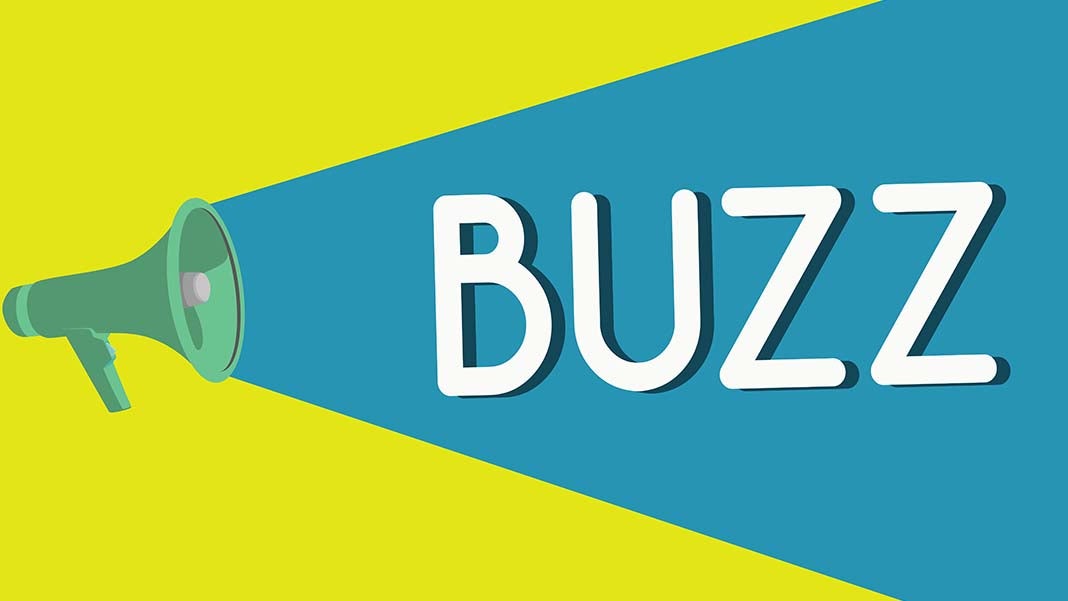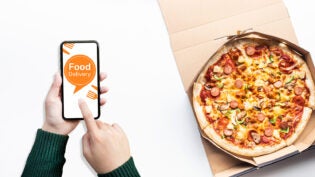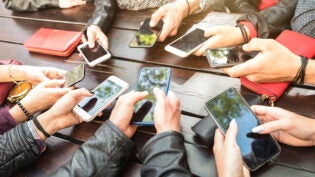Want to Increase Brand Buzz and Customer Loyalty? You Need Experiential Marketing
By: Oliver Michaels

Without a doubt, modern marketing is a numbers game. Likes, comments, shares and views are the currency of our now established digital world of business, the more we get, presumably the better our business is doing.
But with so much emphasis on these vanity metrics, do we miss what really matters when it comes to marketing? Real connections between brands and the consumer are at an all-time low. This is leading to dwindling trust and therefore a lack of loyalty between the customer and the brand.
This trend is clear through the consistent use of digital ad blockers by consumers. We are also seeing digital ad fatigue playing a major part in the effectiveness of purely online marketing campaigns.
We have already seen trends for marketing methods which step away from the traditional, such as influencer marketing. But are there other ways we can overcome this challenge in a simpler, more hands-on way?
Enter experiential marketing.
What is experiential (engagement) marketing?
Let’s first clarify what we mean by experiential marketing. To put it very simply:
“The premise of experiential marketing is to create a closer bond between the consumer and the brand by immersing them in a fun and memorable experience.” Econsultancy
In other words, unlike other forms of marketing such as social advertising or content marketing, where the primary function is broadcasting a message to be heard by the consumer, experiential marketing focuses on involving the consumer in the marketing itself, therefore developing a deeper connection between the audience and the brand.
Often the line between content marketing and experiential marketing is a blurred one. For example, a company such as Red Bull may run an event where participants are involved in the marketing itself, such as a soapbox race. However, Red Bull will also likely collect content from the event and use it online.
In this case, it would depend on how you digest the marketing as to whether you are taking part in experiential or viewing content.
Why do retailers need to use EM?
But why do brands need to be investing time, effort and resources into experiential marketing?
In a social age, we are seeing consumer focus shift from purchasing material products to experiences. No longer is the car you drive or the clothes you wear used purely as a marker of your social status. In fact, with more social sharing taking place, where you go and what you do is now more commonly used as a marker of status.
This has meant a considerable rise in the popularity of ‘Instagram worthy’ venues such as bars and restaurants. This doesn’t necessarily mean that consumers are no longer purchasing products, but that they are putting their experience first when it comes to making purchase decisions.
For retailers, loyalty is shifting from transactional to experiential. Meaning that those retailers that adopt an experiential marketing approach will benefit from increased engagement and loyalty that others cannot achieve.
Benefits of EM
Experiential marketing can generate a whole host of benefits for your business.
Generates buzz
Ever walked into a store to be faced with a giant chess game or group of break dancers? Betting is if you did you would tell someone about it. In fact, you might even tell a few people about it.
This is one of the huge benefits of experiential marketing. It creates experiences that people find worthy of sharing with others. So, if you are able to build your brand message into that experience, you are able to achieve huge word of mouth through that one act.
Increases social media sharing
People don’t just share their experiences by talking any more. In fact, it is now even more likely than ever that an engaging experience will be shared on social media. Brands that help their audience ‘look cool’ are more likely than any other to gather positive shares around their brand.
Again, for those that intelligently build their brand and story into their experiential marketing will be able to increase the reach and engagement significantly.
Engages audience and builds trust
Experiential marketing allows businesses to increase engagement and build trust with their audience at a time when it is more important than ever to do so.
Where consumers are becoming increasingly bored and fatigued by many of the impersonal methods of digital marketing, experiential marketing puts them right are the heart of your business. This allows brands to create strong emotions, which in turn will be closely related to brand in question.
Boosts press opportunities
Anything that catches the consumer’s attention and creates a buzz on social media is likely to also pique the interest of the media. For this reason, many businesses that invest in experiential marketing also see wide coverage on the relevant press.
Examples for SMBs
Retailers can apply experiential marketing in a number of high impact ways.
Pop-Up Stores
Pop-up stores have become more popular in recent years. These are particularly powerful for brands who have a small or no high street presence. They are also highly beneficial to businesses who want to test a geographical market without investing fully.
Pop-up stores and other off-site events can work wonders for brands. However, the complexity of sourcing and booking the perfect venue as well as taking into account the other logistical considerations can mean confusion and chaos; hiring an event management company can remedy this challenge.
Product Personalization
Product personalization is a perfect way to integrate consumers into your brand and generate buzz. This has been proven time and time again.
In fact, one popular example of this was Coca Cola’s campaign in 2013 and 2014 where customers could personalize their labels with their names. This proved hugely popular and saw a lot of social media and word of mouth coverage for the brand.
Service Based
Personalization is not just restricted to the physical product you are offering. In fact, personalization of service is a tested and proven way to increase consumer engagement and loyalty.
More traditional examples of this include make-up counters in large retail stores. However, we are starting to see wider application in SMBs, such as specialty trainer fitters being available in small trainer stores.
It is clear that experiential marketing is a great way to increase buzz around your business, generate engagement from audiences and increase brand loyalty. Although some of the most high profile experiential marketing examples are from big businesses, small businesses can certainly use this tool to their benefit.
2225 Views












